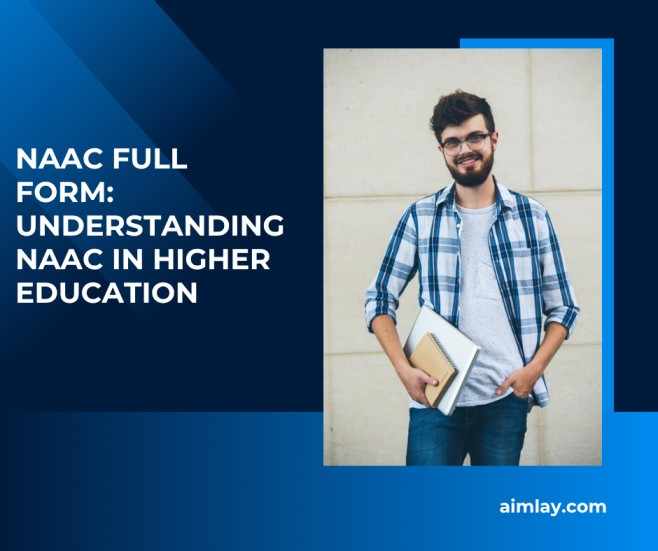
Pursuing a PhD is a prestigious academic journey that reflects a person’s dedication to research, innovation, and in-depth expertise in a specific field. In India, a PhD degree holds significant value in academia, research organizations, and even in the corporate sector. With the increasing demand for skilled researchers and thought leaders, more students are now aspiring to pursue a PhD course in India.
This detailed guide will walk you through everything you need to know about the PhD full form, PhD course duration, PhD admission in India, PhD entrance exam, and the roadmap for PhD admission 2025.
📘 What is PhD? (PhD Full Form)
The PhD full form is Doctor of Philosophy. It is the highest level of academic degree one can achieve in any discipline—be it science, arts, management, engineering, commerce, or law.
A PhD focuses on original research, data analysis, and contributions to existing knowledge. Candidates pursuing a PhD are expected to publish research papers, write a dissertation or thesis, and often participate in teaching or academic mentoring.
🎓 Why Pursue a PhD in India?
India has over 1000 universities, including IITs, NITs, IISc, IIMs, AIIMS, and central/state universities offering world-class PhD programs. Here’s why a PhD Admission in India is considered rewarding:
Globally recognized degrees
Affordable compared to foreign PhDs
UGC and AICTE approved research standards
Availability of government-funded fellowships (JRF, CSIR, ICMR, etc.)
Access to top-tier research labs and faculties
🏫 PhD Course in India: An Overview
The PhD course in India is designed to build research skills, foster analytical thinking, and contribute to the candidate's chosen academic field.
Key Components of a PhD Course:
Coursework (6 months to 1 year): Covers research methodology, subject-specific studies, and proposal preparation.
Research Work: Independent study under a supervisor.
Publication: At least one research paper in a peer-reviewed journal.
Thesis Submission & Viva Voce: Final defense of the dissertation.
⏳ PhD Course Duration in India
The PhD course duration in India typically ranges from 3 to 6 years. Here is a general structure:
Type of StudentMinimum DurationMaximum DurationFull-Time PhD Scholar3 Years6 YearsPart-Time PhD Scholar4 Years7 Years
Note: Extension beyond the maximum period is rarely granted and needs university approval.
📥 PhD Admission in India: Eligibility Criteria
To apply for PhD admission in India, candidates must fulfill the following eligibility criteria:
1. Educational Qualification
Master’s degree (MA/MSc/MTech/MCom/MBA or equivalent) with at least 55% aggregate marks.
Relaxation of 5% for SC/ST/OBC/PwD candidates.
2. Entrance Test
Most universities require passing a PhD entrance exam.
Candidates with valid UGC-NET, CSIR-NET, GATE, or JRF may get direct interview calls.
3. Interview/Proposal Evaluation
Shortlisted candidates must defend their research proposal before an expert panel.
PhD Admission 2025: Application Timeline
If you're planning to apply for a PhD admission 2025, here’s the tentative schedule to follow:
ActivityTentative TimeframeNotification/Prospectus ReleaseJanuary – March 2025Entrance Exam Applications OpenMarch – May 2025Entrance Exam DateMay – July 2025Interviews/Proposal SubmissionJuly – August 2025Final Selection List & AdmissionAugust – September 2025Session BeginsSeptember – October 2025
Note: Timelines may vary by university. Always check the official websites for updates.
📝 PhD Entrance Exam in India
Admission to PhD programs in India is highly competitive. Below are some of the popular PhD entrance exams:
1. UGC NET (National Eligibility Test)
Conducted by NTA
Qualifies candidates for JRF (Junior Research Fellowship) and assistant professorship
Two papers: Paper I (General) and Paper II (Subject-specific)
2. CSIR NET
For science stream candidates
Offers JRF and eligibility for PhD admission in CSIR-affiliated institutions
3. GATE (Graduate Aptitude Test in Engineering)
Mainly for engineering/technical PhDs
Valid GATE score accepted in IITs/NITs/IIITs
4. University-specific Exams
BHU RET (Banaras Hindu University)
DUET (Delhi University)
JNU Entrance
IPU PhD Entrance
TISS RAT (Tata Institute of Social Sciences)
💵 PhD Fees and Scholarships
Fee Structure
Government universities: ₹5,000 – ₹50,000 per year
Private universities: ₹50,000 – ₹2,00,000 per year
Scholarships & Fellowships
UGC JRF Fellowship: ₹31,000/month for first 2 years
CSIR Fellowship: ₹31,000/month (JRF), ₹35,000/month (SRF)
ICSSR/ICMR/ICAR Fellowships
State Government Scholarships
🔬 PhD Specializations in India
You can pursue a PhD in a wide range of disciplines. Popular ones include:
PhD in Computer Science
PhD in Management
PhD in Physics, Chemistry, Mathematics
PhD in English, History, Sociology, Political Science
PhD in Education, Psychology
PhD in Law
PhD in Engineering/Technology
🧪 Research vs. Professional PhD
CategoryResearch PhDProfessional PhDFocusAcademic researchIndustry-oriented problemsOutcomeTheoretical contributionPractical/Applied solutionsExamplesPhD in Physics, HistoryPhD in Management, Law
🧭 How to Prepare for PhD Admission?
If you aim for PhD admission 2025, start preparing now:
✅ Preparation Tips:
Choose a research area early (preferably during your master’s).
Read academic journals and papers.
Prepare for entrance exams (UGC NET, CSIR NET, etc.).
Draft a strong Statement of Purpose (SOP) and Research Proposal.
Stay updated with university notifications.
👨🏫 After PhD: Career Opportunities
A PhD degree opens doors to:
Academic careers: Assistant Professor, Lecturer
Research roles: CSIR, ISRO, DRDO, ICSSR
Corporate sector: Data Scientist, R&D Head
Publishing, think tanks, policy-making
Entrepreneurship in EdTech or Consulting
📌 Final Words
A PhD is more than just a degree; it’s a journey of intellectual growth, academic discipline, and groundbreaking discovery. Whether you're interested in academics, industry research, or policy-level contribution, a PhD in India can be your stepping stone toward excellence.
As PhD admission 2025 approaches, this is the perfect time to plan your path, prepare your documents, and align your academic passion with a research goal that matters.




















Write a comment ...